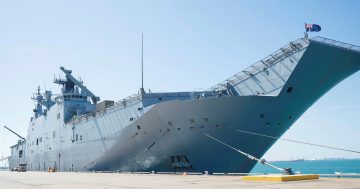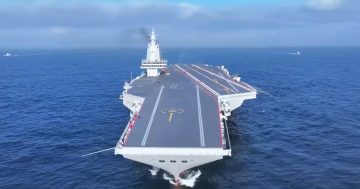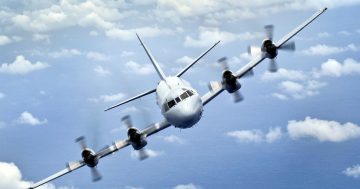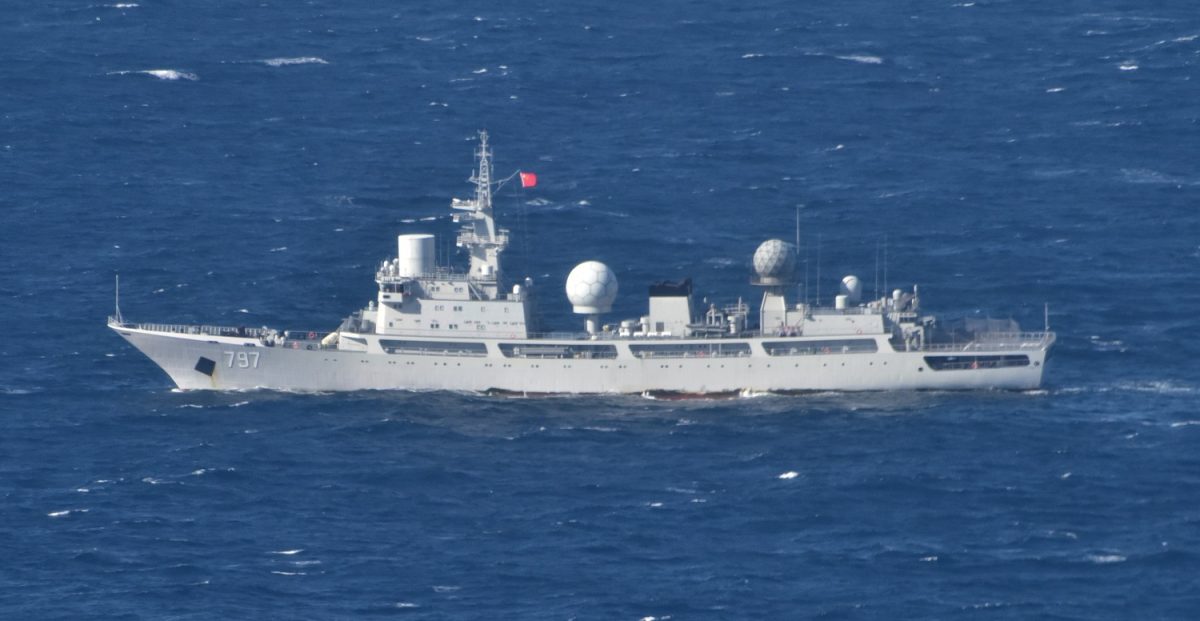
PLA-N General Intelligence Ships (AGI) traverse the waters to Australia’s north-east and north-west. Photo: ADF.
Commercial passenger aircraft pilots flying over the South China Sea and western Pacific regions have expressed concern about disruptions to communications and navigation systems.
In a safety bulletin released on 2 March, the International Federation of Airline Pilots’ Associations (IFALPA) said it had been made aware in recent months of some airlines and military aircraft being called on certain frequencies – specifically VHF 121.5 and 123.45.
It is thought the calls originated from China’s People’s Liberation Army Navy (PLA-N) military warships in the South China Sea, Philippine Sea and south-eastern Indian Ocean.
It said in some cases, flights were given amended vectors to avoid flying over warships – contrary to flight path instructions provided by air traffic control authorities. Electronic interference with aircraft navigation systems – specifically onboard Global Navigation Satellite System (GNSS) and Radio Altimeter (RADALT) systems – had also been reported.
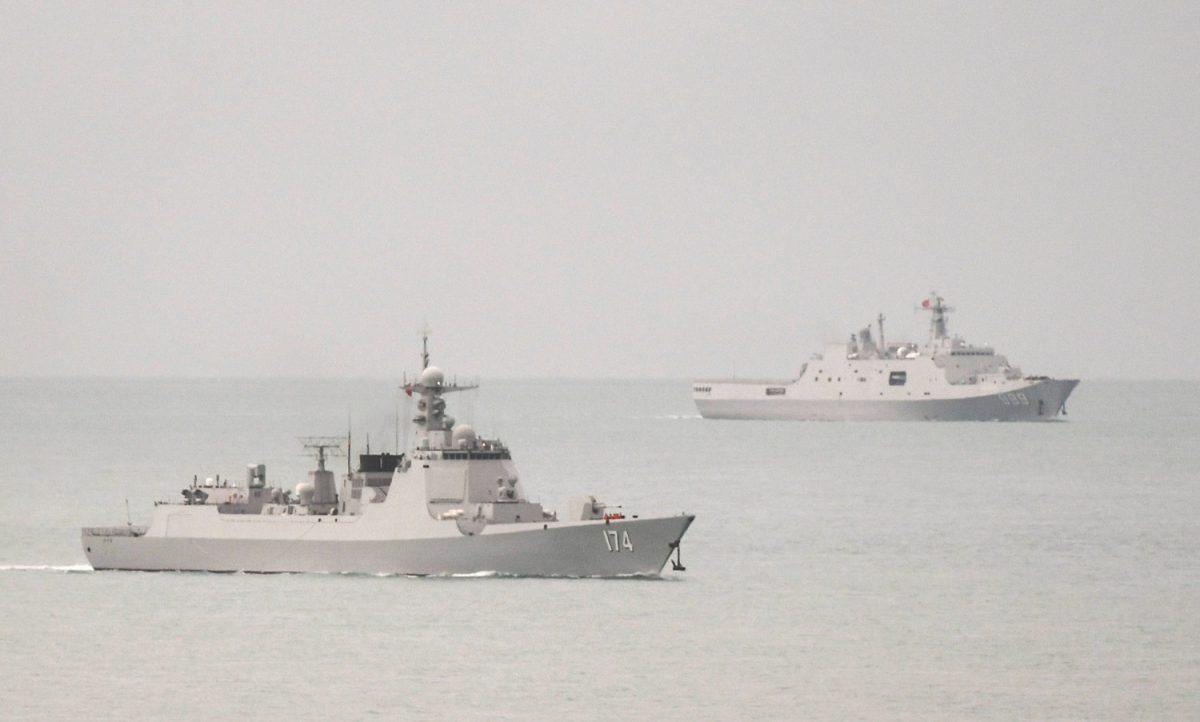
A PLA-N destroyer (left) and amphibious transport dock vessel transit the Arafura Sea and Torres Strait into the Coral Sea in February 2022. Photo: ADF.
As a consequence, IFALPA said it had engaged with the International Air Transport Association (IATA) and with various air navigation service providers in the region to ensure all parties were aware of the correct procedures when faced with such disruptions, and to try to prevent a recurrence.
Pilots travelling through these regions who experience attempts to disrupt their navigation systems have been advised not to respond to the warship. They should immediately report the contact to the controlling air traffic control (ATC) agency, notify the airline’s dispatcher of the attempted contact, and complete a safety report about the interference upon landing.
A notification to Qantas pilots from the airline’s flight operations dated 16 March said Qantas aircraft had also experienced interference in the Pacific and South China Sea regions on VHF radio bands “from stations purporting to represent the Chinese military”.
It said Global Positioning Systems (GPS) jamming had also been experienced off Western Australia’s Northwest Shelf, an area where a PLA-N surveillance vessel was monitored operating in late 2022.
It stressed no safety events had been reported, but advised crews who experienced such interference to “continue to track via their assigned clearance, and report the interference to the controlling ATC authority”. It said a “report must be submitted providing details of the event or of any other unusual activity after landing”.
Professor Samuel Drake, an expert in electromagnetic systems security in the Centre for Defence Engineering Research and Training at Flinders University, said the Federal Government should be concerned by the reports and while there was “no immediate threat, the situation could change without warning”.
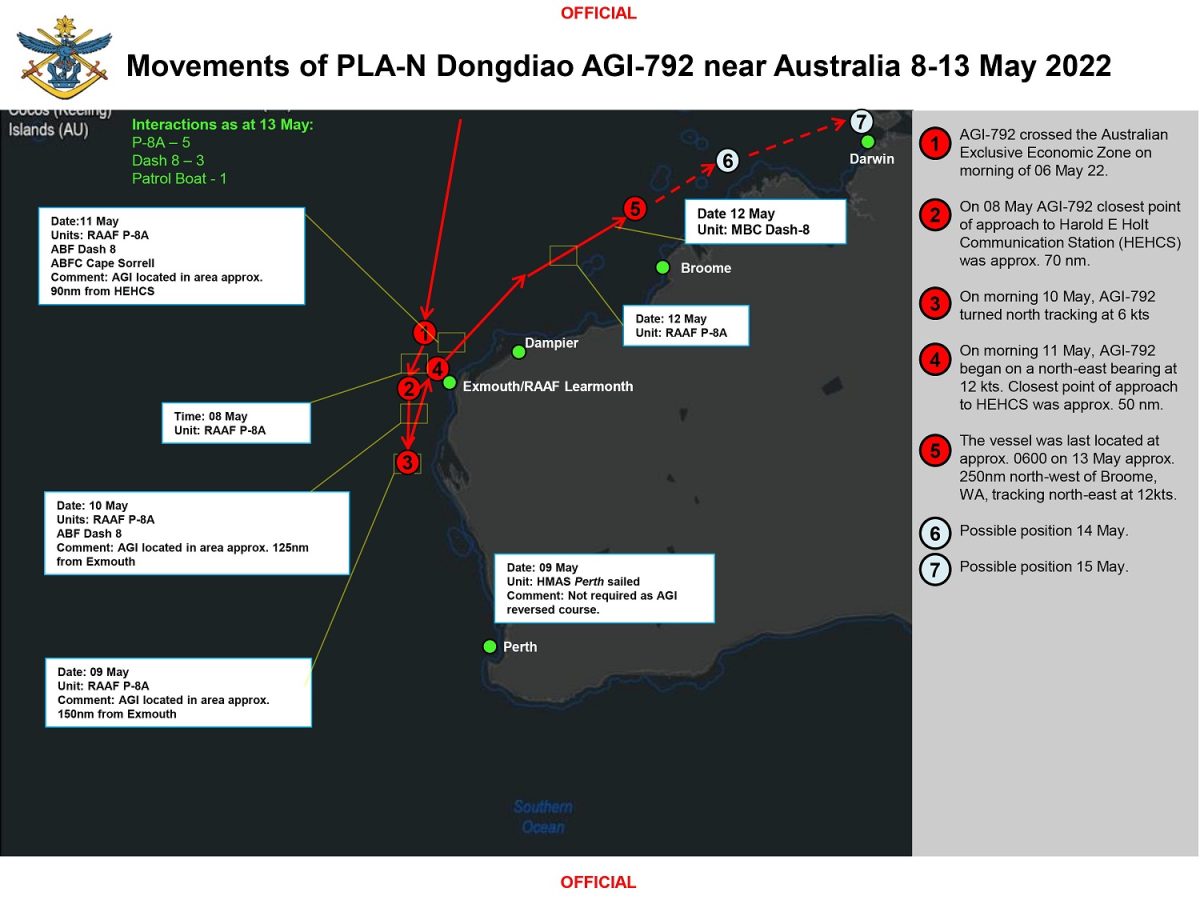
A Defence release of the movements of PLA-N AGI off Australia’s Northwest Shelf in May 2022. Image: ADF.
He said GPS was very easy to jam, despite it being illegal in Australia to do so.
“According to the Australian Communications and Media Authority (ACMA), it could result in up to eight years in prison or over $1 million in fines,” he said.
However, the PLA-N is not subject to ACMA regulation.
“The loss of the GPS signal is not a safety issue, as aircraft have other more reliable and robust navigation systems on board,” he said.
“Unwarranted VHF communications from persons purporting to represent the Chinese military on the other hand, need to be considered carefully.”
Either way, the PLA-N’s actions appear to be somewhat reckless and do not conform to any international conventions of the sea or commercial air traffic regulations.












